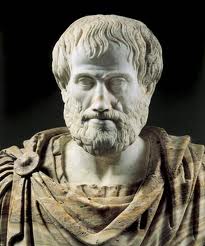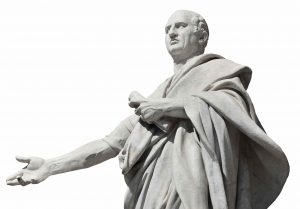Information Avoidance and Persuasion
The 1989 Tour de France was decided in the last stage, a 15.2 mile time trial into Paris. The leader, Laurent Fignon, held a fifty second advantage over Greg LeMond. Both riders were strong time trialers. To make up fifty seconds in such a short race seemed impossible. Most observers assumed that Fignon would hold his lead and win the overall title.
In most time trials, coaches radio the riders to inform them of their speed, splits, and competitive position. In this final time trial, however, LeMond turned off his radio. He didn’t want to know. He feared that, if he knew too much, he might ease up. Instead, he raced flat out for the entire distance, averaging 33.9 miles per hour, a record at the time. In a stunning finish, LeMond gained 58 seconds on Fignon and won the race by a scant eight seconds. (Here’s a terrific video recap of the final stage).
LeMond’s strategy is today known as information avoidance. He chose not to accept information that he knew was freely available to him. LeMond knew that he might be distracted by the information. He chose instead to focus solely on his own performance – the only variable that he could control.
While information avoidance worked for LeMond, the strategy often yields suboptimal outcomes. We choose not to know something and the not knowing creates health hazards, financial obstacles, and a series of unfortunate events. Here are some examples.
- In a study of 7,000 employees at a large non-profit organization, Giulio Zanella and Ritesh Banerjee found that women are less likely to get a mammogram when one of their co-workers is diagnosed with breast cancer. The mammogram rate dropped by approximately eight percent and the effect lasted for at least two years. (Click here).
- Amanda Ganguly and Josh Tasoff offered students tests to determine if they carried the herpes simplex virus. Though the tests were free and readily available, about five percent of the students refused the test for the HSV1 form of the virus. Fifteen percent refused the test for the HSV2 form of the virus, which is widely regarded as the “nastier” version. In other words, the scarier the disease, the more likely people are to avoid information about it. (Click here).
- Marianne Andries and Valentin Haddad investigated similar effects in financial decisions. They found that “…information averse investors observe the value of their portfolios infrequently; inattention is more pronounced …in periods of low or volatile stock prices.” Again, the scarier the situation, the less likely people are to search for information about it. (Click here).
- Russell Golman, David Hagmann, and George Loewenstein also investigated economic decision making and identified five information avoidance techniques: 1) physical avoidance; 2) inattention; 3) biased interpretation; 4) forgetting; 5) self-handicapping. (Click here).
In some ways, information avoidance is the flip side of the confirmation bias. We accept information that confirms our beliefs and avoid information that doesn’t. But there seems to be more to avoidance than simply the desire to avoid disconfirming information. Other contributors include:
- Focus and fatalism – why learn something that we can do nothing about? I suspect that this was LeMond’s motivation. He couldn’t do anything about the information, so why receive it? Instead he focused on what he could do.
- Anxiety – why learn something that will simply make us anxious? The scarier it is, the more anxious we’ll be. We’ve all put off visits to the doctor because we just don’t want to know.
- Ego threat – why learn something that will shake our confidence in our own abilities? It seems, for instance, that poor teachers are less likely to pay attention to student evaluations than are good teachers.
Information avoidance can also teach us about persuasion. If we want to persuade people to change their opinion about something, making it scarier is probably self-defeating. People will be more likely to avoid the information rather than seeking it out. Similarly, bombarding people with more and more information is likely to be counter-productive. People under bombardment become defensive rather than open-minded.
As Aristotle noted, persuasion consists of three facets: 1) ethos (credibility); 2) pathos (emotional connection); 3) logos (logic and information). Today, we often seek to persuade with logos – information and logic. But Aristotle taught that logos is the least persuasive facet. We typically use logos to justify a decision rather than to make a decision. Ethos and pathos are much more influential in making the decision. The recent research on information avoidance suggests that we’ll persuade more people with ethos and pathos than we ever will with logos. Aristotle was right.
Greg LeMond’s example shows that information avoidance can provide important benefits. But, as we develop our communication strategies, let’s keep the downsides in mind. We need to package our arguments in ways that will reduce information avoidance and lead to a healthier exchange of ideas.
Inventing Your Argument
Aristotle defined rhetoric as the ability to “see the available means of persuasion”. In other words, what will it take to persuade the audience to agree with your proposal? It may be an eloquent speech. It may be a brief video. It may be a nice bouquet of flowers. We aim to understand the dynamics of the situation and select the best available means of gaining agreement. To find the best persuasive approach, Cicero said that we need to consider five principles: Invention, Arrangement, Style, Memory, and Delivery. (Click here for brief definitions of each).
Many books on rhetoric present Cicero’s five canons rather formally. They may seem forbidding and perhaps somewhat outdated. But the canons are actually quite useful in finding the best available means of persuasion. To understand the canons and use them effectively, it helps to think of the questions each canon raises.
Let’s begin with the first canon: invention. We seek to invent the most persuasive argument for a given audience. Here are the questions to consider.
- What do you want the audience to do? This surprisingly simple question often goes unanswered. We may express our opinions without a specific goal in mind. As the Cheshire cat said, “If you don’t know where you’re going, any road will lead you there.” Your goal may be to convince the audience to vote for a given candidate or buy a certain product. The more specific the goal, the more persuasive the presentation. (Some inexperienced presenters seem to have a goal of showing the audience how smart they are. That’s usually not persuasive.)
- Are you a credible witness? Why would the audience trust you? If you have relevant experience, make sure the audience knows about it. You can state this yourself or ask someone to introduce you. (They can brag about your accomplishments better than you can). If you don’t have relevant experience, the audience may find you untrustworthy. In this case, you’ll need to enhance your credibility by citing people and sources that your audience respects.
- What are the benefits? To whom do they accrue? – Benefits may fall in several different categories. What are the benefits to individuals in the audience? What are the benefits to their families? To their companies? Think of the hierarchy of benefits and identify the most important ones. Make sure they’re highlighted throughout the presentation.
- Who will make the decision? What are their interests? – Emphasize the benefits to those who are making the decision. Early in my career, I sold word processing equipment that provided many benefits to clerical workers. But clerical workers didn’t make the buying decision. Financial managers did. I needed to state benefits for managers rather than for secretaries.
- How does the audience feel about the competition? – If the audience respects and admires the competition, it’s foolish to launch nasty zingers against them. Doing so simply diminishes your credibility. Clearly state your admiration for the competition, then identify how your solution is different and what benefits that produces.
- How can you convince the audience that you’re one of them? – You want your audience to think you are like them in some regard. This could be your experience, you manner of speaking, your vocabulary, your age, or even how you’re dressed. Don’t ever give the impression that you’re speaking down to your audience. Tip: you don’t need to dress like the audience; they may sense that you’re inauthentic. You do need to dress like the audience expects you to dress.
- What are the audience’s commonplaces? How can you frame your argument to fit their commonplaces? – A commonplace, in this sense, is a set of commonly held beliefs. A conservative audience’s commonplace might be: “We should take steps to enhance liberty.” A liberal audience’s commonplace might be “We should take steps to enhance justice.” You should always know your audience’s commonplaces and – to the extent possible – adapt your argument to fit them.
- What stories can you tell? – Audiences react much better to stories than to abstract concepts. Stories are memorable and touch on emotions. They illustrate ideas simply and clearly. Personal stories are the best but, if you don’t have a personal story to share, feel free to make up a story that illustrates your key points.
Remember that you’re just trying to invent the argument at this point. There are many more questions to ask round out a persuasive argument. If you can answer these questions, however, you can greatly enhance your chances of success.
Don’t Argue In The Past Tense
Let’s say that Suellen and I have an argument and I notice that all the verbs are in the past tense. According to Aristotle, the verbs tell us that the argument is about blame. I may think it’s about who left the door unlocked or forgot to pay the mortgage. But it’s really about blame.
Let’s also say that I win that argument. (This is very hypothetical). I’ve successfully pushed the blame away from myself and on to her. It’s not easy to win an argument, so I do a little victory dance. Meanwhile, how does Suellen feel? Probably a mixture of emotions – irritation, annoyance, anger, … perhaps even a desire to get even. Suellen is the woman I love. Why on earth would I want her to feel like that? That’s the problem with arguing in the past tense. Even if you win, you lose.
Arguing in the past tense is generally known as forensic rhetoric. In many legal situations, we do want to lay blame. We want to establish guilt and make sure that the appropriate person is appropriately punished. Most of the testimony in a trial is in the past tense. Similarly, characters in crime dramas speak almost exclusively in the past tense. The goal is to lay blame and Aristotle and others give us rules for how to argue the point.
Outside of the courtroom, however, arguing in the past tense is essentially useless. We can’t do anything about the past. We can’t change it. We can’t enhance it. We can lay blame but, even then, we will argue endlessly about whether we got it right or not. Did we blame the right person? If so, did we blame them for the right reasons? Did we learn the right lessons? Did history teach us anything? Or did it teach us nothing?
The next time you’re in an argument, notice the verbs. If they’re in the past tense, you’re simply trying to blame the other person. Does it do any good to “win” such an argument? Nope. By “winning”, you just give the other side motivation to come back stronger next time. This is how feuds get started. The Stoic philosopher, Epictetus, had it right: “Small-minded people blame others. Average people blame themselves. The wise see all blame as foolishness.”
Aristotle and Economics

He’s back!
The Nobel economist, Robert Shiller, has an interesting assessment of economics in yesterday’s New York Times. Shiller is one of three economists to win the prize this year and they all have different opinions on rationality and economics.
Prizewinner number one, Eugene Fama, is a rationalist. Rational people making rational economic decisions can explain all of economics. You have to look closely, but it’s all rational. Prizewinner number two, Lars Peter Hansen, occupies a middle position, emphasizing mathematical models but also noting the importance of “animal spirits, … rare events, and overconfidence….”
Shiller (aka prizewinner number three) notes that he is “the most willing … to incorporate ideas about nonrational or irrational behavior from other social sciences….” I’ve written a bit about nonrational economic behaviors – like loss avoidance bias. Additionally, I know that I don’t always make decisions solely for the purpose of maximizing my income. In other words, they’re nonrational in the strictest sense of economic rationality. So, I’m probably in Shiller’s camp.
Ultimately, however, I think the debate goes all the way back to Aristotle who made a clear distinction between:
- Things that can never be other than they are, and:
- Things that can be other than they are.
Physics is in Category One. The speed of light won’t change, no matter how much we discuss it. Thus, Aristotle proposes that analytics are the appropriate tools to study physics – and any other topic that falls in Category One. We analyze to understand, not to change things. By understanding, we may improve our ability to adapt to the world, but we’re not changing the world. (On related topic, I worry that physics envy is leading economists astray. The economists are being nonrational).
On the other hand, Aristotle would put political science in Category Two. The way we govern ourselves can be changed and improved. We need to analyze but we also need to come to a consensus. Aristotle codified rhetoric for this purpose. Rhetoric is the art and science of persuasion with the goal of reaching consensus on how we can improve the world around us. Rhetoric is not simply the art of winning an argument (that’s sophistry). Rhetoric helps us think clearly, reason together, and change what can be changed to build a better world.
I’ve been wondering recently whether economics fits into Category One or Two. If it’s Category One, all we can do is analyze it. We can describe economics but we can’t change it to build a better world – except in the sense that we can understand the world better. If economics is in Category Two, however, we could conceivably identify better ways to organize our economies and improve the world around us.
If economics is totally rational, then it seems to fit into Category One. We can only describe it. There’s no changing it (unless we can change human rationality, which seems improbable).
On the other hand, if economics has nonrational elements, then we could conceivably improve it. We could identify mechanisms that would help us balance rational and nonrational behaviors. As Shiller notes, he still advocates “a free market system, with innovations to make it work better.” I’m an optimist, so I’m hoping that economics fit naturally into Category Two. That’s why I’m lined up with Shiller (and Kahneman and others).
Aristotle has given us an interesting system to organize our thoughts. So what do you think? Does economics fit in Category One or Category Two?
Aristotle, HBR, and Me
I love it when the Harvard Business Review agrees with me. A recent HBR blog post by Scott Edinger focuses on, “Three Elements of Great Communication, According to Aristotle“. The three are: ethos, logos, and pathos.
Ethos answers the questions: Are you credible? Why should I trust your recommendations? Logos is the logic of your argument. Is it factual? Do you have the evidence to back it up? (Interestingly, the more ethos you have,the less evidence you need to back up your logos. People will trust that you’re credible). Pathos is your ability to connect emotionally with your audience. If you have high credibility and impeccable logic, your audience might conclude that you could take advantage of them. Pathos reassures them that you won’t — your audience knows that you’re a good citizen.
When I teach people the arts of public speaking, I generally recommend that they start by establishing their credibility (ethos). The trick is to do this without overdoing it. If you come across as a braggart, you reduce your credibility rather than burnishing it. A good tip to remember is to use the word, “we” rather than “I”. “We” implies teamwork; “I” implies an egocentric psychopath.
After establishing your credibility, you proceed to the logic (logos) of your argument. What is it that you’re recommending and why do you think it’s a good solution for the audience’s needs? It’s often a good idea to start by defining the audience’s needs. Then you can fit the recommendation to the need. Keep it simple and use stories. Nobody remembers abstract logic and difficult technical concepts. They do remember stories.
Think about pathos both before the speech and in the conclusion. Ideally, you can meet the audience before your speech, ask insightful questions, and make personal connections. The more you can talk to members of the audience before the speech, the better off you’ll be. Look for anecdotes that you can use in your speech — that also builds your credibility. If nothing else, spend the last few minutes before your speech shaking hands with audience members and thanking them for coming to your speech. At the end of your speech, you can return to similar themes and express your appreciation. It’s also appropriate (usually) to point out how your recommendation will affect members of the audience personally. For instance, “We believe that our solution will help your company be more efficient. It will also help you build your career.”
Those of you who have followed my website for a while may remember my videos on ethos, logos, and pathos. I made them when I worked at Lawson Software and was teaching communication skills internally. Again, I’d like to thank Lawson for allowing me to use these videos on this website as I build my own practice.
By the way, all these suggestions apply to deliberative speeches. You present a logical argument and ask your audience to deliberate on it. On the other hand, you can also give a demonstrative speech where you throw the logic out altogether. They’re often called barn burners or stem winders. You can learn more here.


